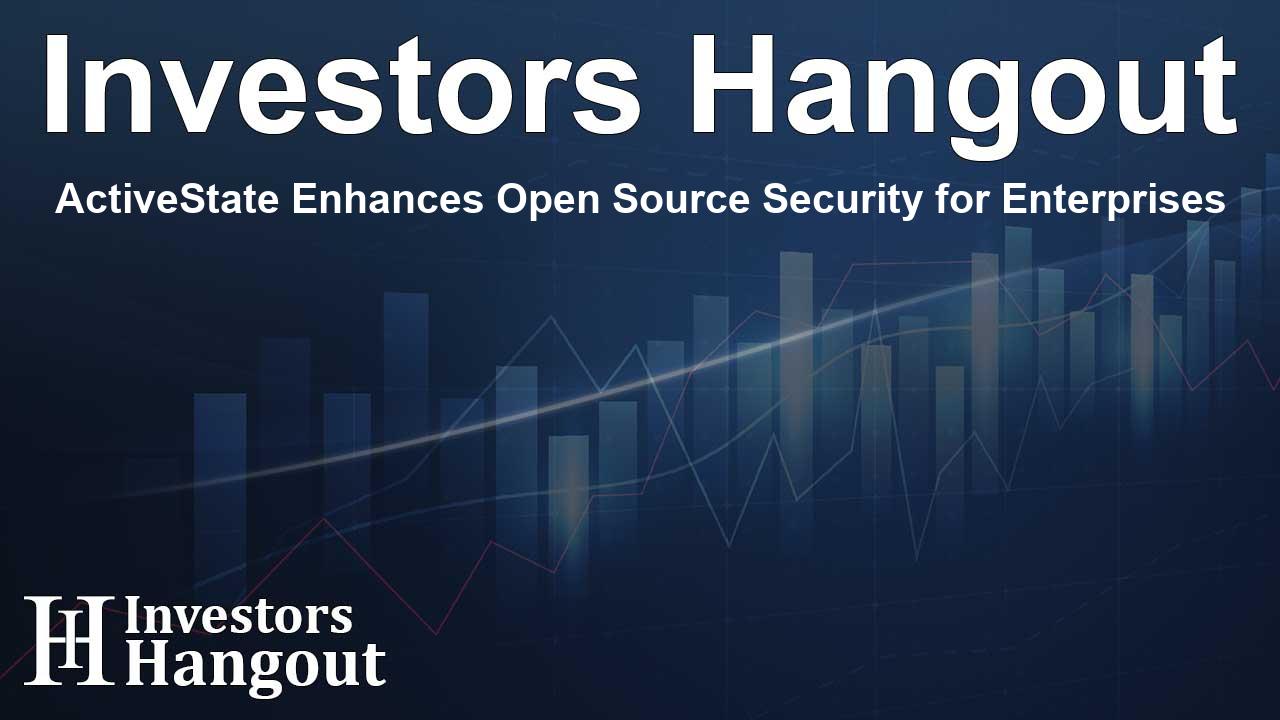ActiveState Enhances Open Source Security for Enterprises

ActiveState's New Offering for Customizable Container Security
In a world where software security is paramount, ActiveState stands out with its latest expansion in secure open-source solutions for enterprises. The company, leveraging over 30 years of experience in open source, offers robust, low-to-no vulnerability containers. With a catalog of more than 40 million secure components, ActiveState is dedicated to providing businesses with the tools needed to fortify their software supply chain.
Understanding the Need for Secure Containers
The landscape of software development is constantly evolving, and with that comes the rising challenge of security vulnerabilities within container offerings. Many current solutions focus solely on base containers, leaving developers to navigate application dependencies on their own. ActiveState's innovative offerings not only address the security of base images but also provide enhanced customization options. This dual approach allows organizations to build secure applications without the hassle of complex customization processes.
Bridging the Gap Between Security and Customization
ActiveState’s container offerings include hardened base images that can effortlessly integrate with the company’s extensive library of managed application dependencies. This feature is designed to alleviate the burden on DevOps and security teams, ensuring a smoother and quicker development process.
Key Features of ActiveState’s Container Solutions
With a clear emphasis on practicality and security, ActiveState introduces several key features in their container solutions:
- Instant and Ongoing Security: Pre-built container images eliminate vulnerabilities from the start, with nightly updates and rigorous remediation SLAs keeping organizations secure.
- Unmatched Customization: Organizations can tap into over 40 million secure components across popular languages like Python and Java, empowering them to build tailored applications that fit their specific needs.
- Streamlined Compliance: The low-to-no vulnerability custom containers simplify the process of meeting rigorous compliance standards, helping businesses adhere to requirements like FedRAMP and SOC 2.
- Efficient Build Automation: Users benefit from ActiveState’s SLSA-3 compliant build system, allowing companies to focus on rapid development while ActiveState handles the complexities of secure image construction.
Insights from Industry Experts
Industry experts recognize the increasing need for secure container solutions. Katie Norton, a research manager in DevSecOps, highlights that the market demands containers that deliver not just secure base layers but also trusted application dependencies. ActiveState's expanded offering directly answers this challenge by combining customizable images with an extensive catalog of pre-vetted components.
Exploring ActiveState's DockerHub
ActiveState recently debuted its container images on DockerHub, offering a repository of low-to-no vulnerability base images that facilitate customization. This strategic move allows the company to cater to a wide range of customers across various industries, including finance, healthcare, government, and more.
As organizations increasingly focus on securing both modern applications and longstanding legacy systems, the importance of seamless integration of updated application dependencies into container security cannot be overstated. To explore ActiveState's offerings, businesses can visit ActiveState's DockerHub to review available images and even request a free non-production container for evaluation.
About ActiveState
ActiveState is a trusted leader in open source software security, enabling teams across DevOps and Information Security to enhance their security posture while fostering innovation and efficiency in application delivery. By continuing to prioritize unnecessary vulnerabilities, ActiveState empowers organizations to build applications securely, quickly, and effectively.
This focus on vulnerability-free open source language packages and container solutions has established ActiveState as a pioneer in the field.
Frequently Asked Questions
What are low-to-no vulnerability containers?
Low-to-no vulnerability containers are specially designed images that significantly reduce the likelihood of security vulnerabilities, ensuring enhanced protection for applications.
How does ActiveState enhance software security?
ActiveState enhances software security by providing secure container images with extensive open source components, along with rapid vulnerability remediation and customization options.
What industries can benefit from ActiveState's solutions?
ActiveState's solutions are advantageous for industries such as finance, healthcare, government, and software, where security and compliance are critical.
How often are the container images updated?
ActiveState updates its container images nightly, ensuring that any identified vulnerabilities are remediated within 7 days for critical issues.
How can companies evaluate ActiveState's containers?
Companies interested in exploring ActiveState’s container offerings can request one free non-production container for evaluation before making a purchase decision.
About The Author
Contact Kelly Martin privately here. Or send an email with ATTN: Kelly Martin as the subject to contact@investorshangout.com.
About Investors Hangout
Investors Hangout is a leading online stock forum for financial discussion and learning, offering a wide range of free tools and resources. It draws in traders of all levels, who exchange market knowledge, investigate trading tactics, and keep an eye on industry developments in real time. Featuring financial articles, stock message boards, quotes, charts, company profiles, and live news updates. Through cooperative learning and a wealth of informational resources, it helps users from novices creating their first portfolios to experts honing their techniques. Join Investors Hangout today: https://investorshangout.com/
The content of this article is based on factual, publicly available information and does not represent legal, financial, or investment advice. Investors Hangout does not offer financial advice, and the author is not a licensed financial advisor. Consult a qualified advisor before making any financial or investment decisions based on this article. This article should not be considered advice to purchase, sell, or hold any securities or other investments. If any of the material provided here is inaccurate, please contact us for corrections.
